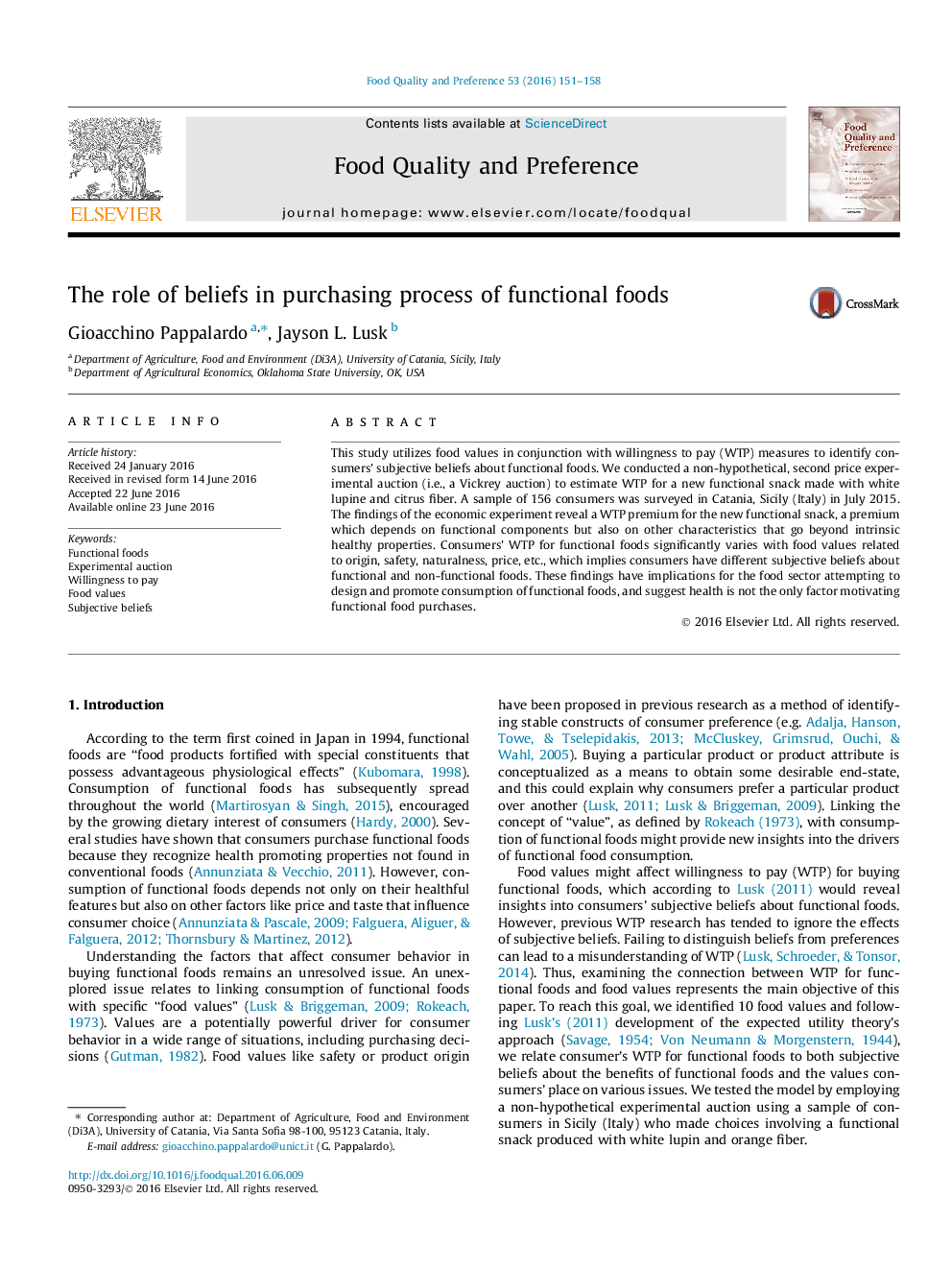| Article ID | Journal | Published Year | Pages | File Type |
|---|---|---|---|---|
| 4316894 | Food Quality and Preference | 2016 | 8 Pages |
•Willingness to pay for buying functional foods goes beyond their intrinsic healthy properties.•Food values associated with functional foods’ consumption affect willingness to pay for buying these products.•Willingness to pay for functional foods varies as a function of subjective beliefs related to food values.•Premium price for functional foods also depends on changes of subjective beliefs occurring under different conditions.•Consumers of functional foods seek for an equitable balance between healthiness and other food values.
This study utilizes food values in conjunction with willingness to pay (WTP) measures to identify consumers’ subjective beliefs about functional foods. We conducted a non-hypothetical, second price experimental auction (i.e., a Vickrey auction) to estimate WTP for a new functional snack made with white lupine and citrus fiber. A sample of 156 consumers was surveyed in Catania, Sicily (Italy) in July 2015. The findings of the economic experiment reveal a WTP premium for the new functional snack, a premium which depends on functional components but also on other characteristics that go beyond intrinsic healthy properties. Consumers’ WTP for functional foods significantly varies with food values related to origin, safety, naturalness, price, etc., which implies consumers have different subjective beliefs about functional and non-functional foods. These findings have implications for the food sector attempting to design and promote consumption of functional foods, and suggest health is not the only factor motivating functional food purchases.
